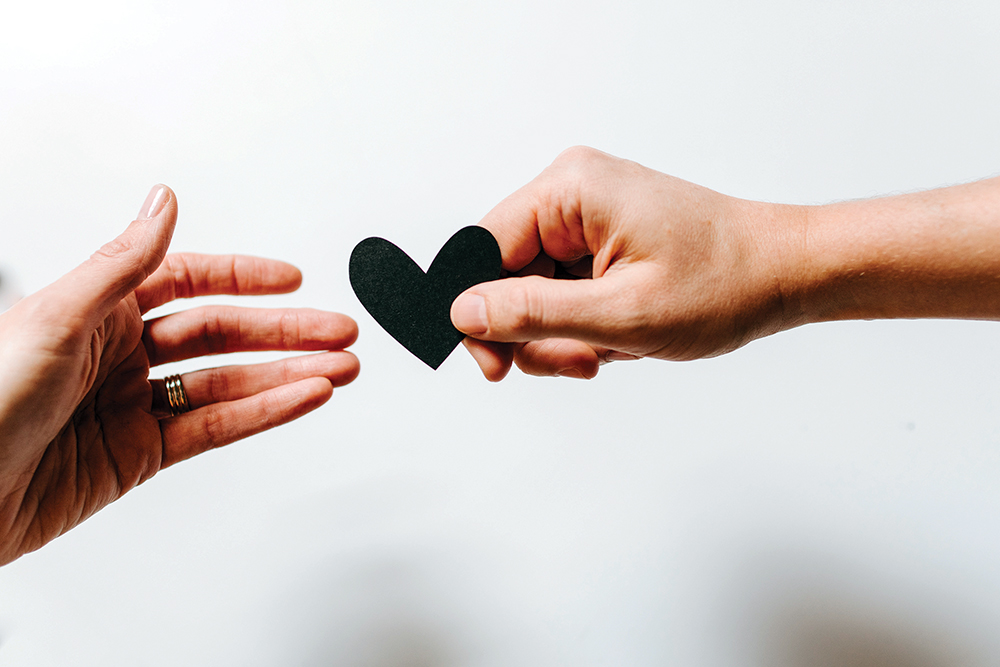Healthy relationships, as a concept, are a lot like “normal” ones. That is to say, they exist on a spectrum and can be highly contextual.
People can struggle to imagine how both relationships and individual realities can be as subjective as they are, or how something that’s very true for one person is just as untrue for another. This is perhaps because we spend so much time grappling with the idea of what is “normal” or “not normal.” Hungarian-Canadian physician Gabor Maté has called that concept out for what it is — entirely mythical — even making it the title of one of his books.
Really, as long as the psychological, emotional, and safety needs of both people are being met within a relationship, it counts as healthy. To this end, there are a few guiding thoughts to keep in mind as you navigate through friendships and romantic connections, long-term partnerships and marriages, and even relationships with parents and family members.
Understand the burden of expectations.
It’s become common, partly thanks to Hollywood, to have an image of romantic relationships or partnerships where our partners are our everything. Movies and television sell us this idea of a near-perfect connection with another person, someone that lives and breathes us, and we them. Even scripted sitcom spats over dirty dishes and raising kids somehow have a glamorized sheen to them.
The underlying concept isn’t completely a myth, however. Relationships can and do get to that warm and fuzzy place. The scripted part is arguably the suggestion that two people can get there right away. It takes time, and a very great deal of work and mutual nurturing to support the commitment those people make to each other.
In a literal sense, even the most satisfying and kismet relationships don’t involve each person being the other’s “everything.” That’s too heavy of a burden. It doesn’t just take a village to raise kids, but to navigate through the world as healthy adults. Our families, whether it’s a family of origin or a chosen family, play an integral role in that support system, as do friends, religious figures and leaders, and even neighbors.
Here’s another thing that the most successful couples realize: A healthy relationship does not equate to being happy all the time. The relationship isn’t going to be perfect, and you will have disagreements. Take the time to appreciate the positives, make an active effort to have lives outside of the relationship, say thank you, and support each other.
When unhealthy behaviors start slipping through and occurring more frequently, it’s important to note that these behaviors could start verging on abusive or toxic.
Appreciate the importance of independence.
Some level of independence within any relationship is healthy. If you can’t function without another person, that can symbolize codependence or that the connection may not be healthy.
Having independence in a relationship, your own life and friends, is important. For romantic connections, on the other hand, it’s equally important to honor the things you enjoy doing together and that bring you closer. A relationship shouldn’t feel like two people living separate lives side by side.
The simple power of kindness.
You can never go wrong with being a kind and nice person. Sometimes, when you get close to someone, it can be more challenging. Emotions run higher, and situations can become more intense. You might get angrier with your partner or a family member than you would with a friend or work colleague, sometimes because it feels safer to, and sometimes because having given yourself so much to someone, even small transgressions can start to feel like big betrayals.
On occasion, this can tip into problematic behaviors. Don’t assume that because a person is a family member or romantic partner, the rules about apologizing, accountability, and owning up when you get things wrong don’t apply or apply differently. Always remember that your partner is human, too.
Relationships, ultimately, are a shared journey of learning more about each other and appreciating one another’s subtleties and personalities. This can be helpful to remember while navigating some of the ups and downs. Even hard times are a core part of the journey. Whatever you do, don’t beat yourselves up — and don’t chase after “normal.”
Rachael DeSaussure is the assistant clinical director at Kindred Place, a hub to nurture strong, healthy relationships. Rachael specializes in helping clients with anxiety, depression, stress, domestic violence, trauma, PTSD, behavioral management, coping skills, family conflict, relationship issues, and boundaries.
